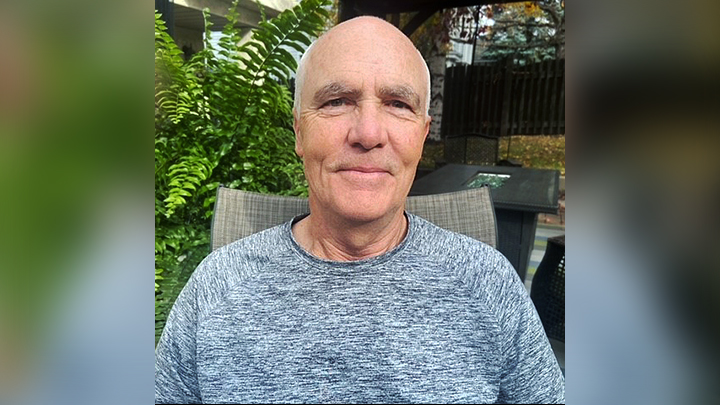
October 24, 2023

Actively involving patients and families on a day-to-day basis are important to the safety culture at Alberta Health Services. “I know my family appreciated all of the times staff asked if we had any questions or concerns,” says Rick Fraser, a longtime AHS Patient Safety Advisor. “Being invited to ask questions helped my wife while I was in the hospital.” Photo supplied.
Story by Kathleen Deman & Katie McLaughlin
Alberta Health Services (AHS) is committed to building a patient safety culture that embraces a partnership with patients and families from the bedside to the boardroom. As this relationship between patients and providers evolves, it increases patient and family participation in safety.
AHS is also dedicated to developing environments where everyone contributes to deliver, support and find solutions in partnership to improve safety. One of the ways we do it is through our advisory groups.
“When healthcare providers work closely with patients and their families, the healthcare system is safer, and patients have better experiences and health outcomes,” says Coty Ong, Senior Patient Safety Specialist with Patient Safety Learning and Improvement. “Together we learn, act and contribute to make care safer at AHS.”
The provincial Patient and Family Advisory Council (PFAC), for example, has been actively supporting the design, delivery and evaluation of AHS’ services for more than 13 years. Patient and family advisors routinely help inform AHS policies and practices, quality improvement and patient safety work.
During the COVID-19 pandemic, PFAC worked closely with AHS to update the Family Presence policy suite, which included the creation of a designated family/support person (DFSP) role. This change moved us towards seeing families as partners in care and an integral part of a patient’s care team — including being an advocate for safety.
“Designated family/support persons play a pivotal role in helping keep patients safe, and the work our PFAC advisors did in updating the Family Presence policy is an example of their importance,” says Deanna Picklyk, Director of Engagement & Patient Experience. “Recognizing their role, we know it’s important to properly prepare advisors and ensure that staff understand the role they play in our organization.”
Providers, patients, and leaders all have a role to play in creating and sustaining a culture of safety at AHS. As of October, AHS has 800 patient and family advisors and 227 members on various advisory councils.
Preparing advisors for their role starts with a good orientation, which was just updated and launched this October. It was co-designed with advisors and staff. This orientation will ensure that advisors, like Rick Fraser, understand their role before they get started. Fraser has been a Patient Safety Advisor with AHS for many years and has helped to inform quality improvement efforts within the organization. He appreciates first-hand the importance of patient voices at AHS.
“It makes a difference when you see leaders welcome you, ask you questions and include you in the conversation” says Fraser. “In meetings, it resonates with me when leaders take the time to ask me questions directly and thank me for my time, it creates a safe space.”
The steps taken on a day-to-day basis are important to the safety culture at AHS. Actively involving patients and families in what matters most to them, prioritizing patient and family needs and encouraging and providing awareness of how to report safety concerns in patient areas are all ways to engage our patient and families.
“I know my family appreciated all of the times staff asked if we had any questions or concerns,” adds Fraser. “Being invited to ask questions helped my wife while I was in the hospital.”
There are more ways staff can have a big impact daily on patient safety when they:
“Simple actions matter and can have a big impact on the safety of our patients their families, healthcare providers and leaders,” adds Ong. “Inviting everyone to co-design the future of healthcare can be as simple as taking part in conversations that are open, curious and focused on learning.”
AHS is celebrating Canadian Patient Safety week from Oct 23-27, 2023. Learn more, visit ahs.ca. If you’re interested in becoming a patient and family advisor, contact Patient.Engagement@ahs.ca or visit our website.